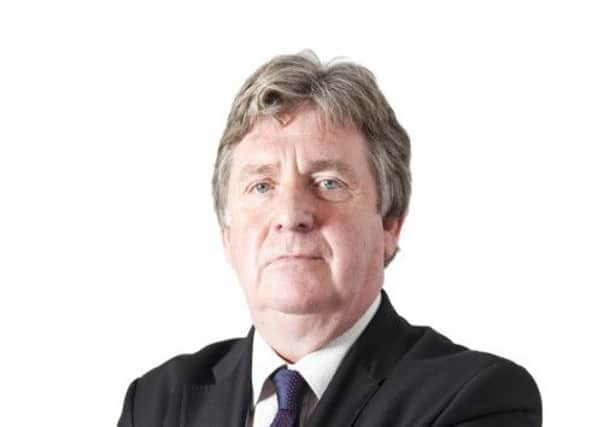Comment: Osborne’s mixed bag tells us little


Not infrequently, the point of the statement seems to be about political posturing rather than economic relevance, a chance for some grandstanding by the UK government before we head into the dark days of mid-winter.
George Osborne had good news for us, bad news for us, and the hoary political message of much done, much still to do. The good news was the biggest upgrade to the UK’s economic growth forecasts for years. At the time of the last Budget nine months ago, the Office for Budget Responsibility slashed this year’s growth forecast from 1.2 per cent to 0.6 per cent.
Advertisement
Hide AdAdvertisement
Hide AdNow it is forecasting 1.4 per cent for this year and a heady, in the circumstances, 2.4 per cent for 2014. It was difficult to miss the strong air of political vindication.
But overall public debt is still projected to rise for several years yet, the Chancellor acknowledged. This was not in the coalition government’s scenario when it took office way back in 2010.
There’s plenty more austerity and welfare cuts to come. In a further blow to generation Y, born from the late 1980s and now suffering from crippling tuition fees and chronic unemployment, the state retirement age is to be raised to 68 by the mid-2030s, then to 69 by the late-2040s, the Chancellor revealed.
A lot more public sector jobs are set to go, with Osborne saying that £1 billion is to be cut off Whitehall departments’ budgets in each of the next two years.
Labour leader Ed Miliband was not slow to continue his successful body-punching to the coalition, saying better economic statistics are coming from a low base and mean little to households coping with stagnant wages and rising prices.
It is not just the government that does the grandstanding at Autumn Statement time. Osborne had some electoral sweeteners. Green levies are cut, bank levies up.
Fine as far as they go, but not enough for anybody to switch voting intentions at the next election. In the greater scheme of things, the freshening UK recovery remains vulnerable to a housing price boom, any new shocks in the eurozone and maverick political developments (Chinese/Japanese tensions in the East China Sea?).
In short, there has been some ruffling of the surface with the Autumn Statement as usual. But we probably knew the essential economic state of the country without it.
EasyJet cleared for takeoff to better times
Advertisement
Hide AdAdvertisement
Hide AdBUDGET airline EasyJet has had such a few difficult years squeezed between major shareholder disquiet and being upstaged by the garrulous Michael O’Leary at rival Ryanair that it should be allowed its satisfaction at continued rising passenger numbers in November.
A total of 4.25 million people sat on its planes’ seats, up 3.4 per cent on a year earlier. This was partly due to soaring demand for flights to Moscow and Reykjavik, which indicates that freezing is becoming the new black in fashion terms.
So far this year EasyJet has flown 61.2 million passengers, up from 59 million in the first 11 months of 2012.
Pre-tax profits have leapt in response, and investors are to benefit from a £175m special dividend.
The view from the cockpit window at the company looks clearer than for a while.